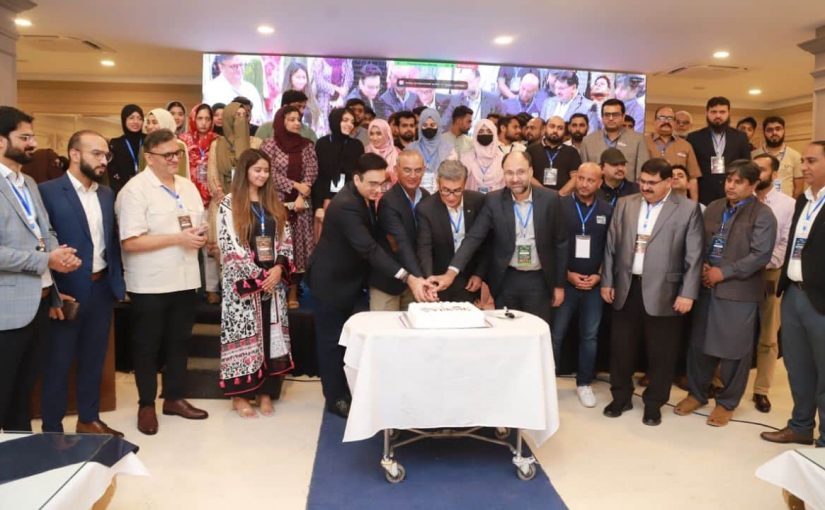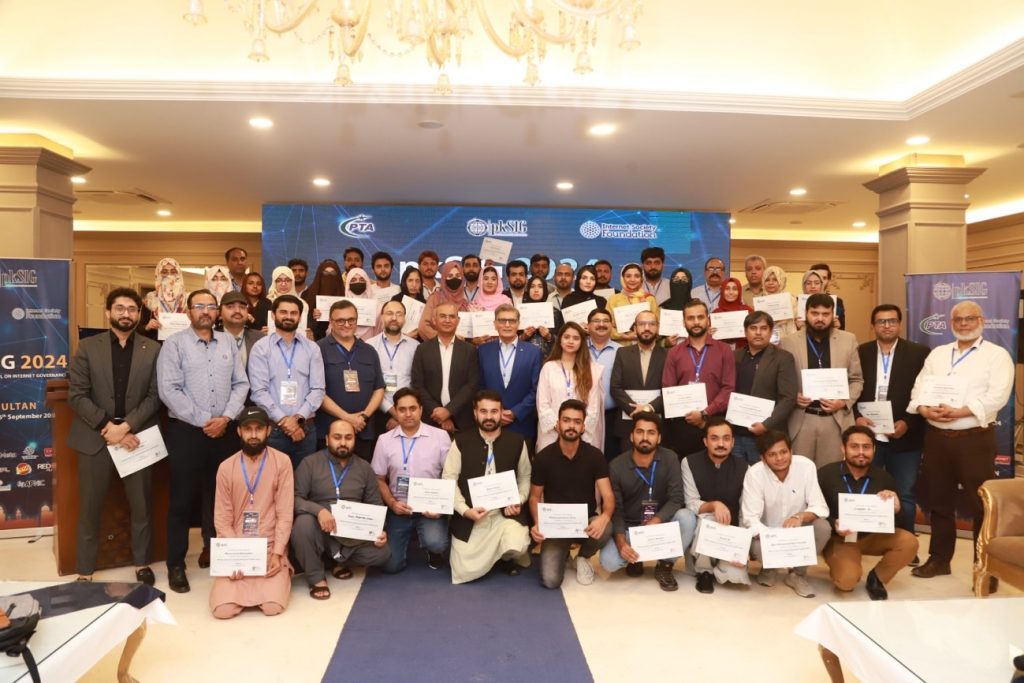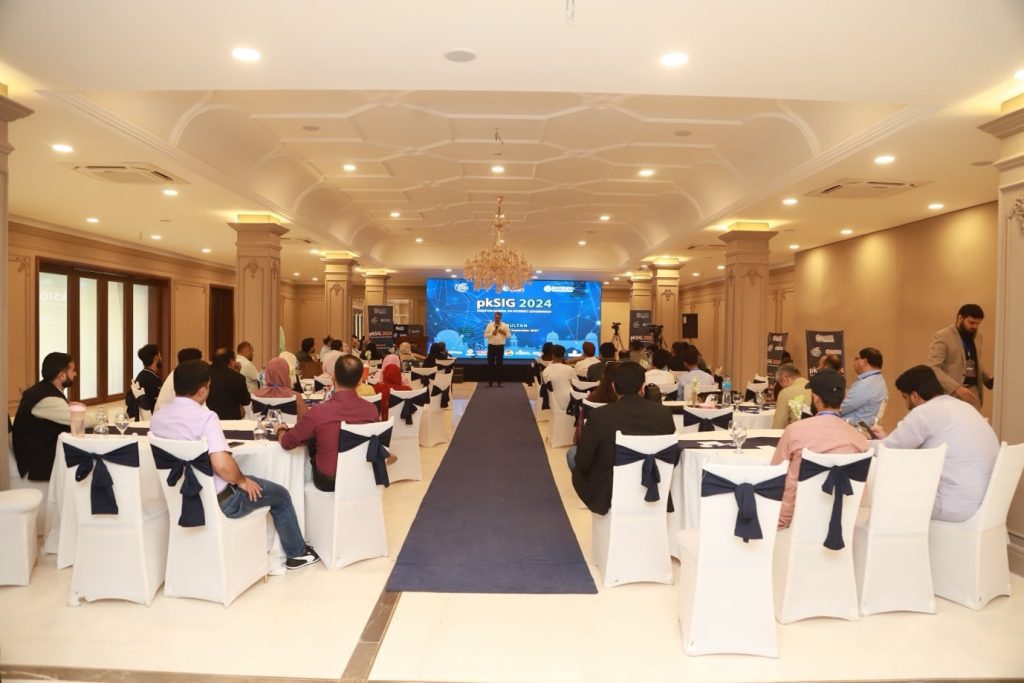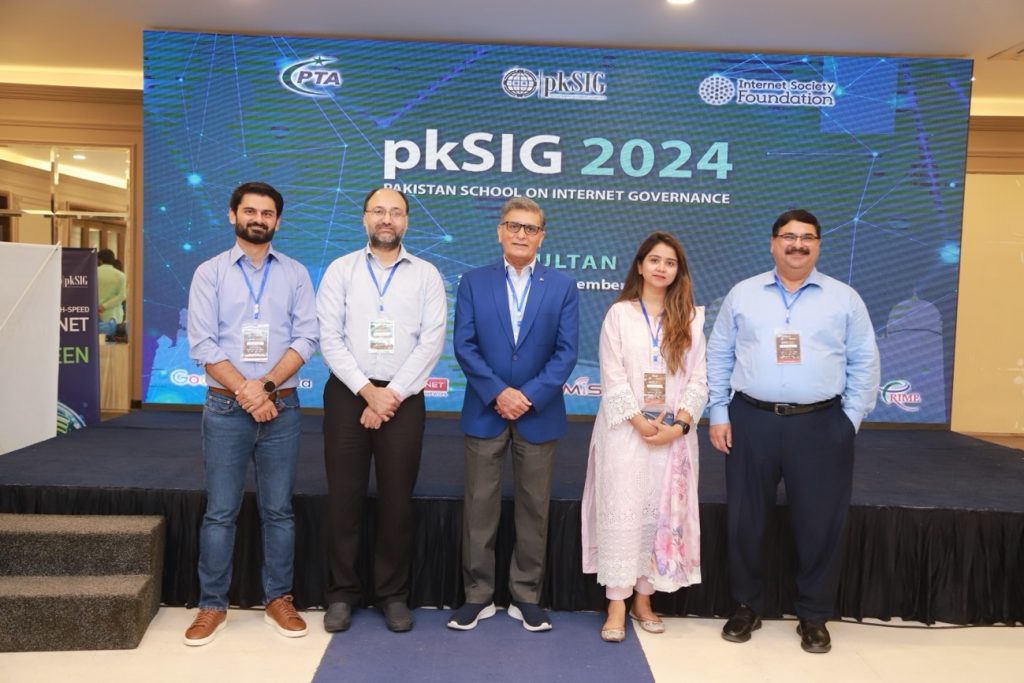pkSIG Celebrates 10 Years of Internet Governance Education
Established in 2015, the first “national” School on Internet Governance in the Asia-Pacific — possibly the world — the Pakistan School on Internet Governance (pkSIG) is celebrating its 10th edition. Prior to pkSIG, the landscape was primarily shaped by regional schools, such as the Asia-Pacific School on Internet Governance (APSIG). pkSIG set a precedent, inspiring other countries to launch their own national schools; for instance, India’s inSIG began a year later in 2016.
The seeds of pkSIG were sown when the launch of 3G in Pakistan sparked an ‘internet boom’. During this transformative period, some visionaries recognised the imperative to bolster the participation of fellow Pakistanis in the multi-stakeholder global model of Internet Governance.
It was decided to organise Pakistan School on Internet Governance (pkSIG) with the objective of creating awareness about the multi-stakeholder model of Internet governance (in which anyone can participate from anywhere in the world) and developing the next generation of Internet leaders in Pakistan who can take part in global Internet Governance. Renowned educationist Dr Arshad Ali led the first 4-day pkSIG, which the Higher Education Commission hosted.
What is Pakistan School on Internet Governance (pkSIG)?
A School on Internet Governance is a 3 to 4-day event where leading national and international experts deliver talks/lectures and workshops on various aspects of Internet Governance, including Internet governance ecosystem, I* organizations, cyber security, cyber laws, trust and safety over the Internet, Internet standards/protocols, privacy and data protection, digital transformation, digital divide, digital inclusion (including web accessibility for persons with disabilities), users’ rights etc. These are accompanied by role-plays and debates on matters related to Internet governance.
In Pakistan, the pkSIG classes are free-of-cost for up to fifty (50) participants from different backgrounds and affiliations, who have an interest in Internet Governance. Participants are mainly university students and young professionals from civil society, academia, government, technical communities, and private sectors, all interested in shaping the future of the Internet in Pakistan. Ten to twelve deserving students of the local communities, mainly from outside the city where pkSIG is being held, are awarded Fellowships, covering their accommodation and transport.
At the end of each pkSIG, the participants are also educated about the post-pkSIG opportunities for further learning (e.g., fellowships and grants available from various international organisations). Finally, pkSIG participants receive certificates of attendance – but only those who attended all the sessions.
A Brief History of pkSIG
Following the first pkSIG in 2015, a group of volunteers (who formed a “Steering Committee”) took over the task of organising the subsequent pkSIGs, starting from the Virtual University Lahore in 2016.
So far, pkSIG has been organised all over the country as follows:
2015 – Higher Education Commission, Islamabad
2016 – Virtual University, Lahore
2017 – Khyber Pakhtunkhwa IT Board, Peshawar
2018 – Regent Plaza, Karachi
2019 – National Incubation Center, Quetta
2020 – Online – due to the pandemic
2021 – Online – due to the pandemic
2022 – Pearl Continental, Muzaffarabad
2023 – Ramada, Gilgit
2024 – Ramada, Multan
The last (10th) pkSIG in 2024 was organised at Multan, where it received an overwhelming response with over 250 applications, out of which 50 were selected, including 11 fellows from the surrounding areas. Four fellows were female, including one visually impaired, whose enthusiastic participation in the School was an inspiration for all.
Another event highlight was the showcase session, where founders of prominent digital business Startups from Multan — Scentyou.pk, epiccraftings.com, and giftmixservices.com — shared their inspiring journeys.
In the ten editions held so far, the School has trained nearly 350 students. On average, 26% participants are female, which may seem low, yet it aligns with the stark reality that Pakistan has one of the widest gender digital divides in the world. Interestingly, the best female participation was in remote cities of Quetta 2019 (38%) and Gilgit 2023 (33%).
As we look back at pkSIG’s impact over the last decade, it is clear that the School has not only equipped a small but vibrant set of youth with vital knowledge and skills but has also inspired a generation of internet leaders now actively contributing to the regional and global public policy discussions on the future of the internet.
The Unseen Forces Behind
Gratitude is further extended to the organisations who have, at one or more times, helped organize pkSIGs. These include PTA, MoIT, ICANN, ISOC Foundation, ISOC Islamabad Chapter, Asia-Pacific Network Information Center (APNIC), APASA, Virtual University, KPIT Board, AJK IT Board, Balochistan IT University, NIC Quetta, Cybernet, Jazz, eCommerce Gateways, MultiNet, NRS, Inspire Mill, PCL, Tik Tok, Meta, Google, and local ISPs in their own areas, like SCO, Multan ISP, InstaCom, and PrimeNetworks.
Mostly requests are made for sponsors to pay for various expenses directly rather than providing cash, and there is a strict refrain from taking any kind of compensation.
It would be unfair not to mention the names of the Steering Committee members who devote their time and energies after their office hours, or on weekends, as they all have other full-time jobs. They are: Waqas Hassan, Ahmed Bakhat, Mohammad Adil Ali, Umaira Rana, Ameena Sohail, and Dr Mohammad Shabbir. Two others who deserve special mention are: Dr. Mukaram Khan and Fouad Bajwa.
Pakistan School of Internet Governance aspires to continue delivering a high-quality curriculum to Pakistan’s youth, empowering them with the insights and perspectives needed to navigate and adapt to the evolving Internet governance discussions worldwide. Notably, Commitment, motivation, and excitement are maintained about what is to come in the next ten years of pkSIG.
November 06, 2024




